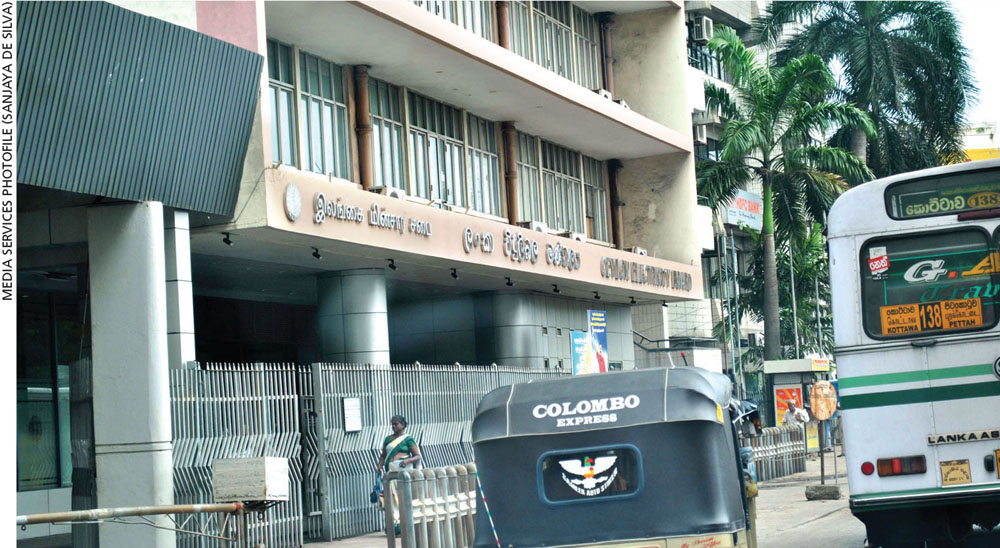STATE SECTOR
BUREAUCRATIC BUMF EXPOSED!
Janaka Perera laments Sri Lanka’s civil service – a sick and sleeping giant
 Decades of inefficiency, bureaucratic lethargy, malpractices and rampant corruption have plagued Sri Lanka’s public service. So much so that it’s hard to get anything done without bribing a peon or the subject clerk in a government office.
Decades of inefficiency, bureaucratic lethargy, malpractices and rampant corruption have plagued Sri Lanka’s public service. So much so that it’s hard to get anything done without bribing a peon or the subject clerk in a government office.
People who come to Colombo from the outstations have to waste hours – even days – in government departments, being pushed from pillar to post to have their needs met.
Today, the public service is a sick giant.
As secretary to former president Ranasinghe Premadasa Deshamanya K. H. J. Wijedasa notes: “It is a well-known fact that the Sri Lanka public service today is in a state of total disarray. Many are the shortcomings especially in its structure and functions, the level and quality of performance, work methods and procedures, and overstaffing of unimaginable proportions as a means of gaining political mileage…”
“Shameful politicisation, over-institutionalisation, and a lack of integrity, probity and accountability, which plagued the very survival of the public service, have been conveniently ignored – with scant attention paid to training and performance appraisal, and none to rectifying the malaise of low morale and lack of job satisfaction among public servants,” he elaborates.
According to Wijedasa, from the time Sri Lanka gained independence in 1948, the public service – with the then Ceylon Civil Service (CCS) at its apex – was one of the most efficient, independent, trusted and exemplary institutions in newly independent countries.
In fact, it’s on record that the then prime minister of Singapore Lee Kuan Yew was greatly influenced by it when he was modelling the admirable Singapore’s Public Service Division.
As Wijedasa states, politicisation of our public service began to take root from around 1956. The tempo increased with every change of government by way of political recruitments and interference in day-to-day administration by politicians – especially in doling out land, houses, subsidies and public assistance.
The gradual imposition of political authority over smart and independent administrators took place with the aim of gaining political clout.
Since 1977, political favours in recruitment were regularised by establishing the infamous system of job banks. The dismissal of thousands of public service employees who took part in the general strike of 1980 created a vacuum by way of loss of experienced senior officials and institutional memory, resulting in a yawning lack of knowledge and expertise.
Wijedasa asserts that in 1990, Premadasa “reintroduced the merit-based system of recruitment, thereby depoliticising the recruitment process. But unfortunately, this did not last long. In 1994, the new government – under the guise of doing justice to the political victims of the UNP (United National Party) regime – reverted lock, stock and barrel to the old system.”
“Lately, the public service has been inundated with thousands of nondescript graduate employees recruited to nonexistent posts – and many of them are said to be working from home for lack of office space,” he adds.
Consequently, delivery of public services is impaired due to inadequate systems, low skills and limited competencies, and is often interrupted by strike action. It’s also overloaded and bursting at the seams. Today, political interference has reached the high-water mark. The routine decision-making process in state institutions has been stifled while public servants await the political nod.
However, both present and previous governments seem to have recognised the importance of transforming this country into a technology-based society, and improving public services among others. But unfortunately, this will not be a panacea.
The plan includes the implementation of a ‘digital government’ to improve the delivery of public services, development of the tech industry for jobs and growth, support for digital entrepreneurship, and growth of a digitally savvy workforce and population.
Technology can take over some of the tasks performed by state sector workers, predominantly in areas involving basic paperwork, data processing and simple financial transactions.
But if the people are to truly reap the benefits of digital technology, the government needs to ensure that access to a high-speed, affordable internet service is available to all Sri Lankans – including those residing in remote areas of the country.
It also needs to make sure that the right policies, laws and regulatory frameworks are in place to protect the security, data and rights of all – especially the vulnerable.
Technology-based public services can enhance governance mechanisms by fostering transparency, accountability and citizen participation. Digital platforms and e-governance initiatives will enable citizens to access state services and information, and reduce bureaucracy and corruption.
However, whether these plans will succeed is left to be seen.




